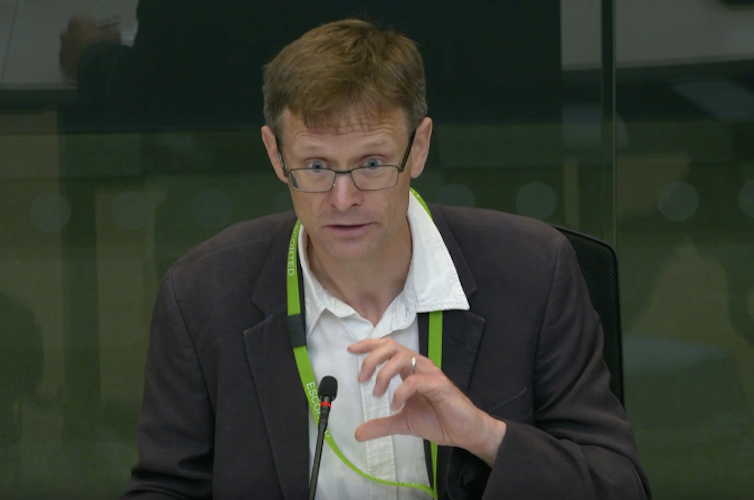Arts Council England has warned City Hall that already hard-hit cultural organisations across London will face new financial challenges this autumn when its next round of funding is announced.
“We have a requirement to redistribute funding to outside the capital to support levelling up. That’s a clear government directive,” the council’s strategic partnerships director Paul Bristow (pictured) told the London Assembly’s economy committee today.
“That will mean some difficult decisions in the coming funding round in October,” he said. “It will clearly restrict the potential to grow the cultural sector within London using Arts Council funding. It will create a challenging situation.”
The warning came as the committee heard that grassroots arts groups in the city continue to suffer from the effects of the Covid pandemic alongside new challenges, including cost of living pressures, rising costs touring and premises, staffing difficulties, and skills shortages.
A report to the meeting set out how London’s “cultural offer” extends well beyond Zone 1. City Hall analysis in 2019 showed the city was home to 52 LGBT+ night-time venues, 94 grassroots music venues, 263 theatres and 165 museums and galleries.
The sector had been under pressure even before the pandemic, with venues closing and reductions in support from councils going back almost a decade, the report said.
The latest Arts Council England guidance for funding to 2026 confirmed government instructions to shift cash away from the capital, lopping off some £75 million from funding for London over the next three years.
“We are very concerned about the next year or so,” Clara Cullen from the Music Venue Trust, which supports grassroots music venues, told Assembly members. Audiences remained below pre-pandemic levels, while typically short leases were running out and bills were rising, she said.
The picture is similar for the Museum of Migration, which is currently operating from a former H&M store in Lewisham shopping centre. Its director, Aditi Anand, expressed concerns about marketing, footfall and its insecure tenancy.
Abdul Shayek, artistic director of the long-standing Tara Theatre, warned that “now we are facing the levelling up agenda, which could mean we lose out”. He urged the Arts Council not to abandon the sector.
“We know our communities in a way the larger organisations don’t,” he added. Community theatre had been able to meet local needs during the pandemic, and was winning back audiences. Tara’s forthcoming production with the Donmar Warehouse exploring the impact of the 1947 partition of India is 70 per cent sold out even before its cast has been announced.
“We are speedboats while the National Theatre is an oil tanker,” he said. “But if one of our shows doesn’t do well we are in a difficult position. The Arts Council needs to be brave and support risk-taking.”
Grassroots music venues are the “A&R department” of the live music industry as well as vital spaces for niche audiences, said Cullen. “It all starts at these small venues.”
Lorna Lee, assistant director for culture and heritage at Waltham Forest Council, which was the first beneficiary of Sadiq Khan’s London Borough of Culture scheme, highlighted small arts organisations’ ability to “reflect the diversity of their communities and garner local participation”.
Anand added that smaller cultural organisations could be “world-class in their own right, providing that experience without having to travel into central London”.
Audiences are returning in London faster than in the rest of the country, said Bristow, while conceding that the recovery remained “patchy”. He said the Arts Council remains committed to supporting culture in the capital, with funding directed particularly to Barking & Dagenham, Brent, Croydon, Enfield and Newham under its “priority places” programme.
Bristow joined with other speakers in calling for planning policies to recognise that culture could “reanimate the high street” by helping organisations to take up vacant premises. “I don’t think we are talking about ‘meanwhile uses’ any more. We are seeing a permanent shift,” he said.
See the economy committee’s meeting in full here.
On London is a small but influential website which strives to provide more of the kind of journalism the capital city needs. Become a supporter for £5 a month or £50 a year and receive an action-packed weekly newsletter and free entry to online events. Details here.

